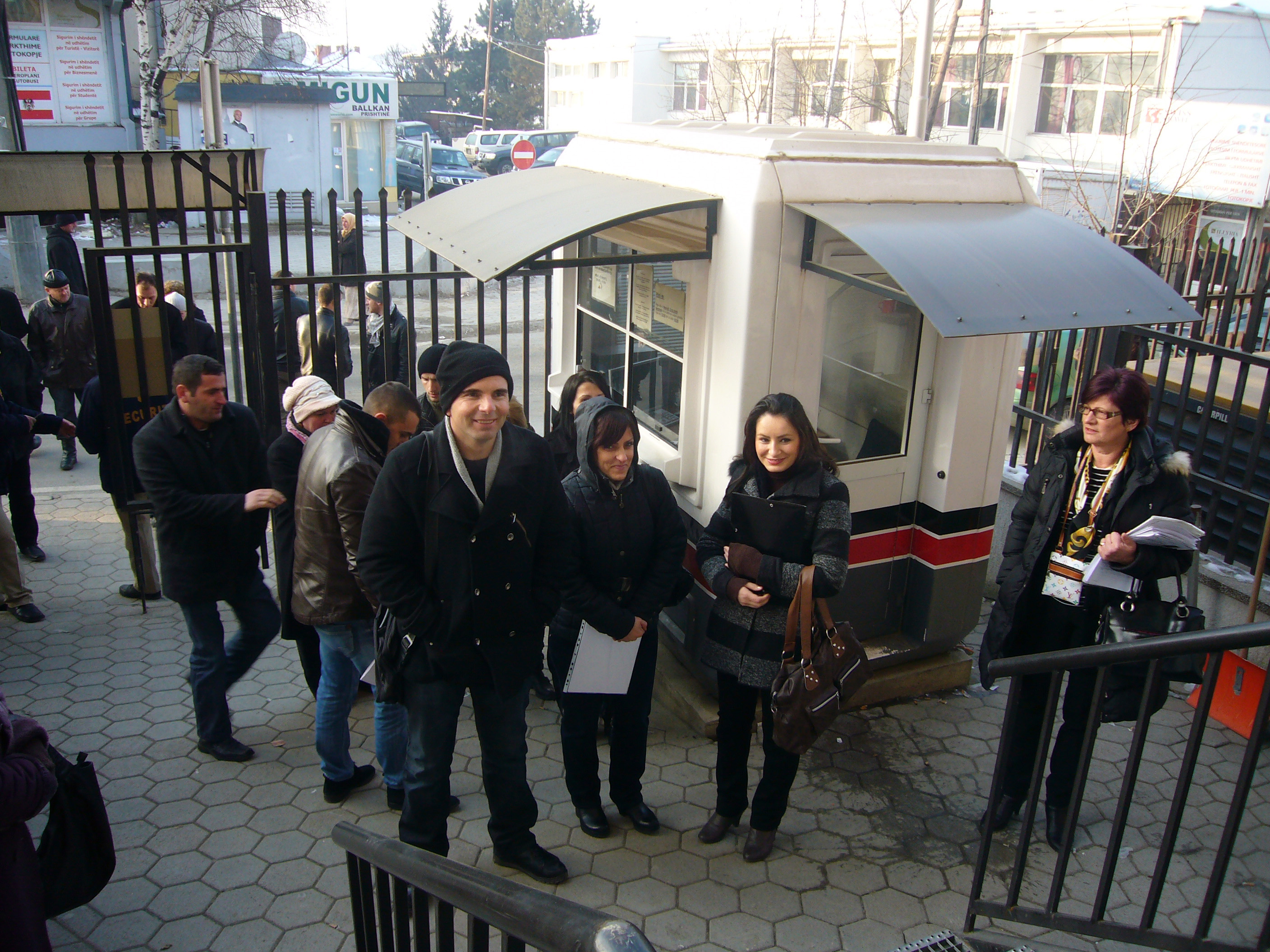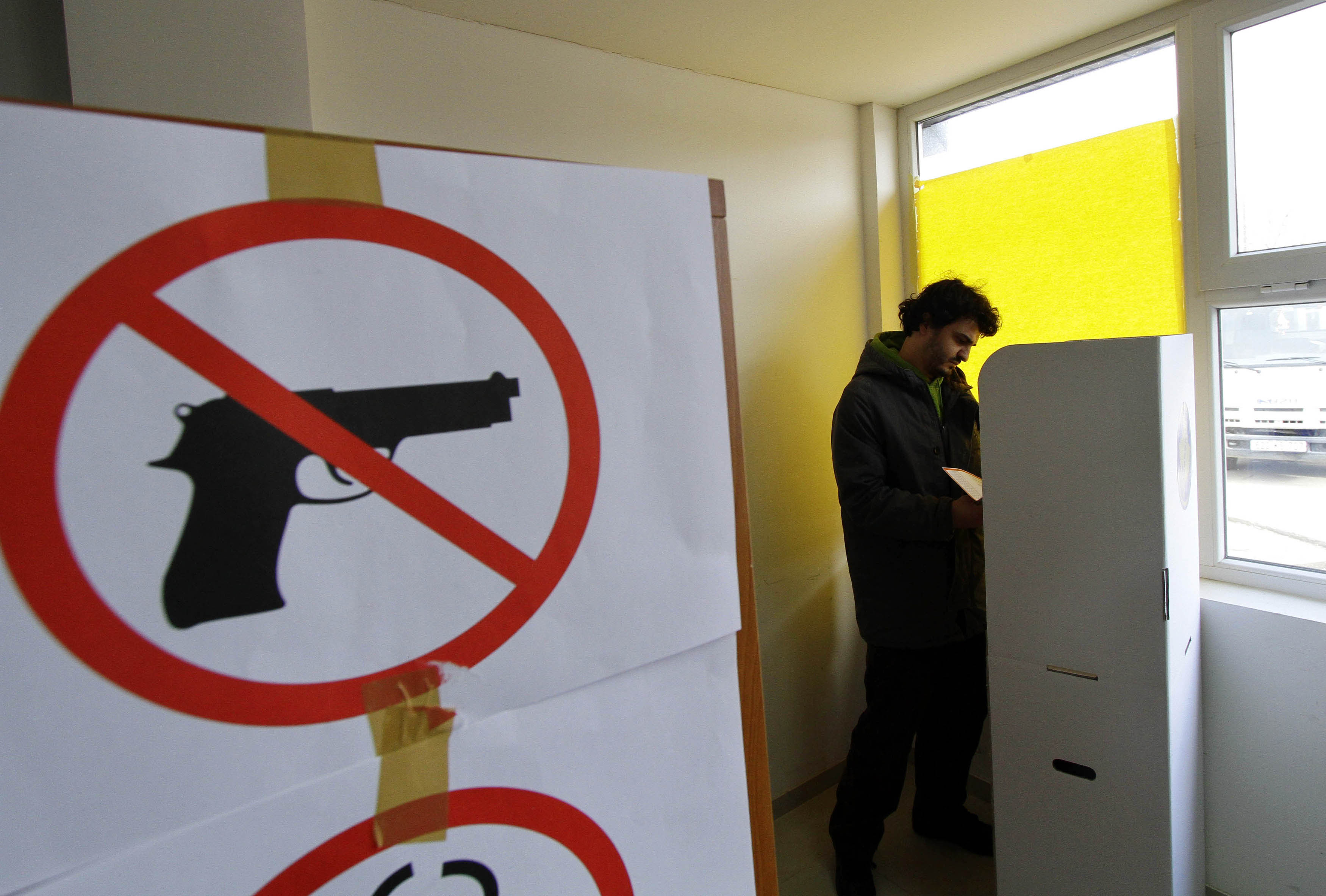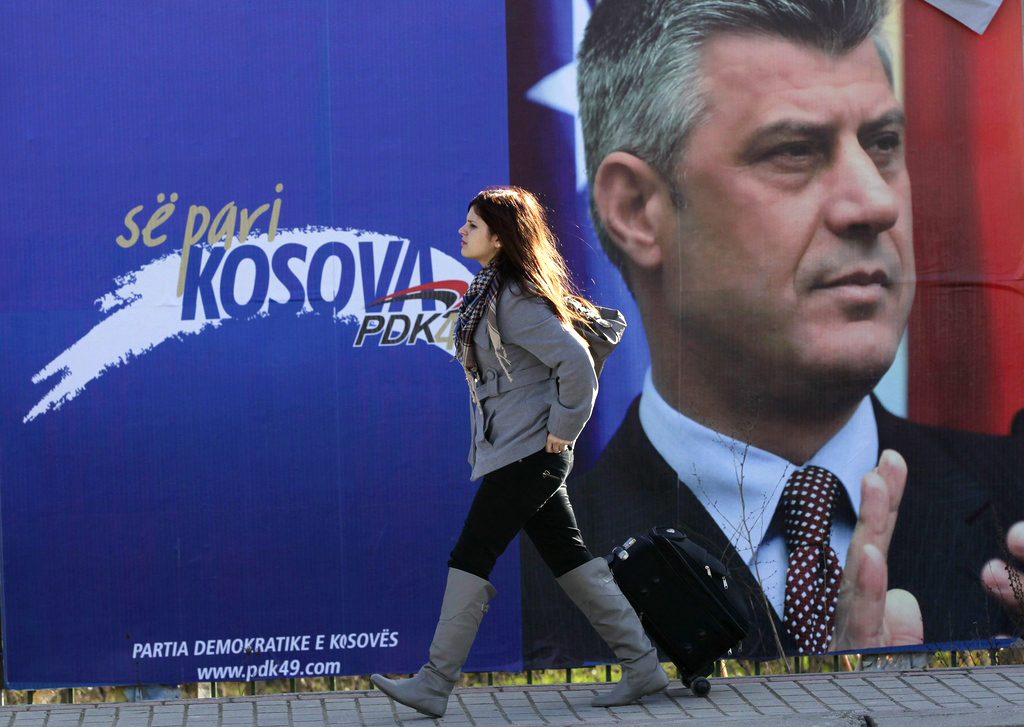Returning home to Kosovo with Swiss help

Nearly 12 years after the end of the war in Kosovo, and three years after independence, many of its citizens continue to seek asylum in Switzerland.
Meanwhile, Kosovars in Switzerland who have not been granted asylum are being helped to make a successful return home.
Last year, 602 Albanians, Romas and Serbs from Kosovo, most of whom had entered Switzerland illegally, filed for asylum.
It’s up to Grégoire Crettaz, a migration attaché at the Swiss embassy in Kosovo’s capital Pristina, to check whether their stories are true, whether they really are victims of threats, intimidation or social exclusion, and are therefore entitled to refugee status.
“There have been a few feuds between families. Someone was killed in a fight, and now the rival family is being threatened. My job is to find out whether this is all true,” he told swissinfo.ch.
Crettaz travels around the country and speaks to the families of the asylum seekers, their neighbours and the local police.
“Cases involving threats are difficult to verify,” he admitted.
Social exclusion
He also investigates cases in which young women have been excluded from their families because they married without the family’s approval.
“For an uneducated woman returning alone without family or state support, life could be very difficult, so we’re very careful about these kinds of cases,” he added.
If an applicant does not fulfil the criteria for asylum but is considered at risk if he or she returns home, that person is granted temporary admission and receives state support in Switzerland.
But a majority of applicants are rejected, given a choice between taking part in voluntary repatriation programmes, or being forcibly sent home, a less effective and more expensive option according to the Swiss authorities.
Sustainable reintegration
Repatriations are carried out by the International Organization for Migration (IOM), which provides counselling, transportation, and reception at the final destination.
IOM national operations officer Sheremet Kukaj, introduced swissinfo.ch to two former asylum seekers who have managed to set up successful businesses since returning home recently from Switzerland .
We met saxophonist Burim Danqi, practising for his evening gig in a freezing cold, empty restaurant in Gadime.
His shiny new mixing desk, microphone and speakers were paid for by the Swiss to help him get started in business on his return home.
Danqi, who belongs to the minority ethnic Ashkali, went to Switzerland in 2008. He applied for asylum and found casual work as a musician, but he missed the wife and three children he had left behind.
When he found out about the Federal Migration Office repatriation scheme, he decided to head back home.
“I don’t regret coming home, but I really enjoyed living in Switzerland. I received a lot of tips, playing music in a restaurant in Aarau. Life is more of a struggle here in Kosovo,” Danqi told swissinfo.ch.
Employment help
The Swiss authorities pay for measures to improve economic prospects for both the returnees from Switzerland and members of the receiving communities, through its employment assistance programme (EAS).
Special attention is paid to vulnerable individuals and groups, such as Ashkalis, who suffer from their minority status.
Danqi received SFr2,000 ($2,065) for agreeing to go home, SFr3,000 ($3,097) to pay his rent for a year, and a further business start-up allowance of SFr3,229 ($3,394).
With his new equipment, he has been able to find regular work in the municipality of Lipjan, quite an achievement in a state where half the population is unemployed.
In Lipjan, Shaban Sejdiu is busy working in his garage, also paid for with the help of the EAS.
When the mechanic returned from Switzerland, he received similar sums to Danqi, which he used to repair his war damaged house and buy into a business.
His garage does a steady trade, making around €400 ($538) per month, which is divided between the two partners. This is in line with the average wage in Kosovo of about €200 ($269) per month.
“We just about manage to make a living. I top up my income with work on building sites,” said Sejdiu.
The IOM considers the scheme a success, because all of the participants have received help with finding work. But it does little to stem the tide of Kosovars wanting to go to Switzerland.
Visa restrictions
Every morning on his way to work, Crettaz has to pass dozens of people queuing for visas outside the Swiss embassy.
“There has been no reduction in the number of people seeking to leave since Kosovo’s declaration of independence three years ago,” he said.
It’s hardly surprising when you consider that little has changed since 2008. The country, with around two million inhabitants is still among the poorest in Europe. Jobs are scarce, salaries are low, while the cost of living is relatively high.
Last year, 15,000 visas were issued for trips to Switzerland. Whether that restriction will be lifted remains to be seen.
If Kosovo joins the Schengen visa-free zone, migration specialists fear that a much greater number of people would flee their new state to join extended families in Switzerland, already home to some 170,000 Kosovars.
The IOM repatriates Kosovars from Austria, Hungary, Germany, Belgium, Norway, Sweden, Switzerland, France, Bosnia and Herzegovina, Luxemburg, Finland, Britain, the Netherlands, the Czech Republic, Slovakia and Australia.
Between June 1999 and December 2010, 34,405 Kosovars were repatriated from Switzerland to Kosovo. 70 per cent of them were male. 67.5 per cent were Albanians
In 2010, 163 people received repatriation assistance from Switzerland.
Kosovo is the only west Balkan state whose citizens still need visas to travel to Schengen countries.

In compliance with the JTI standards
More: SWI swissinfo.ch certified by the Journalism Trust Initiative














You can find an overview of ongoing debates with our journalists here . Please join us!
If you want to start a conversation about a topic raised in this article or want to report factual errors, email us at english@swissinfo.ch.